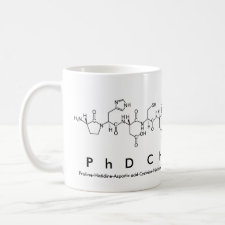
Authors: El-Aal MAA, Al-Ghobashy MA, Fathalla FAA, El-Saharty YS
Article Title: Preparation and characterization of pH-responsive polyacrylamide molecularly imprinted polymer: Application to isolation of recombinant and wild type human serum albumin from biological sources.
Publication date: 2017
Journal: Journal of Chromatography B
Volume: 1046
Page numbers: 34-47.
DOI: 10.1016/j.jchromb.2017.01.031
Alternative URL: http://www.sciencedirect.com/science/article/pii/S1570023216313654
Abstract: In this work pH-responsive neutral and cationic polyacrylamide molecularly imprinted polymers (nMIP and cMIP, respectively) were prepared for separation of recombinant and wild type human serum albumin (HSA, pI 4.7) using mixture of polymerization initiators. The effect of pH during preparation and adsorption stages at pI(HSA) ± 2.0 on binding capacity and selectivity; imprinting factor (IF) was thoroughly investigated. SE-HPLC and RP-HPLC were employed for thorough evaluation of the stability of HSA at the studied experimental conditions and for simultaneous determination of HSA and erythropoietin (EPO) in their mixtures, respectively. Results showed that nMIP were generally superior to cMIP, where nMIP prepared at pH 2.7 and tested at pH 6.7 showed superior binding characteristics (IF 42.91). The pH at the preparation stage imposed minimal effect on the stability of HSA owing to entrapment of HSA within the polymer network. Adsorption experiments carried out at pH 2.7, regardless of polymer type and pH of preparation revealed poor selectivity. Adsorption of HSA onto MIP followed Sips model with pseudo second-order kinetics. Scanning electron microscopy (SEM) revealed a rough surface for MIP and a smooth one with wider pore diameter for non-imprinted polymer (NIP). Successful separation of recombinant HSA from its binary mixture with EPO and wild type HSA from crude plasma was demonstrated using RP-HPLC. This suggested that MIP should be applicable for downstream purification of therapeutic grade HSA at scale either from plasma or recombinant sources and isolation of HSA from plasma for diagnostic purposes
Template and target information: protein, human serum albumin, HSA
Author keywords: molecular imprinted polymer, pH-responsive polymer, human serum albumin, Erythropoietin, Biopharmaceuticals



Join the Society for Molecular Imprinting

New items RSS feed
Sign-up for e-mail updates:
Choose between receiving an occasional newsletter or more frequent e-mail alerts.
Click here to go to the sign-up page.
Is your name elemental or peptidic? Enter your name and find out by clicking either of the buttons below!
Other products you may like:
 MIPdatabase
MIPdatabase









